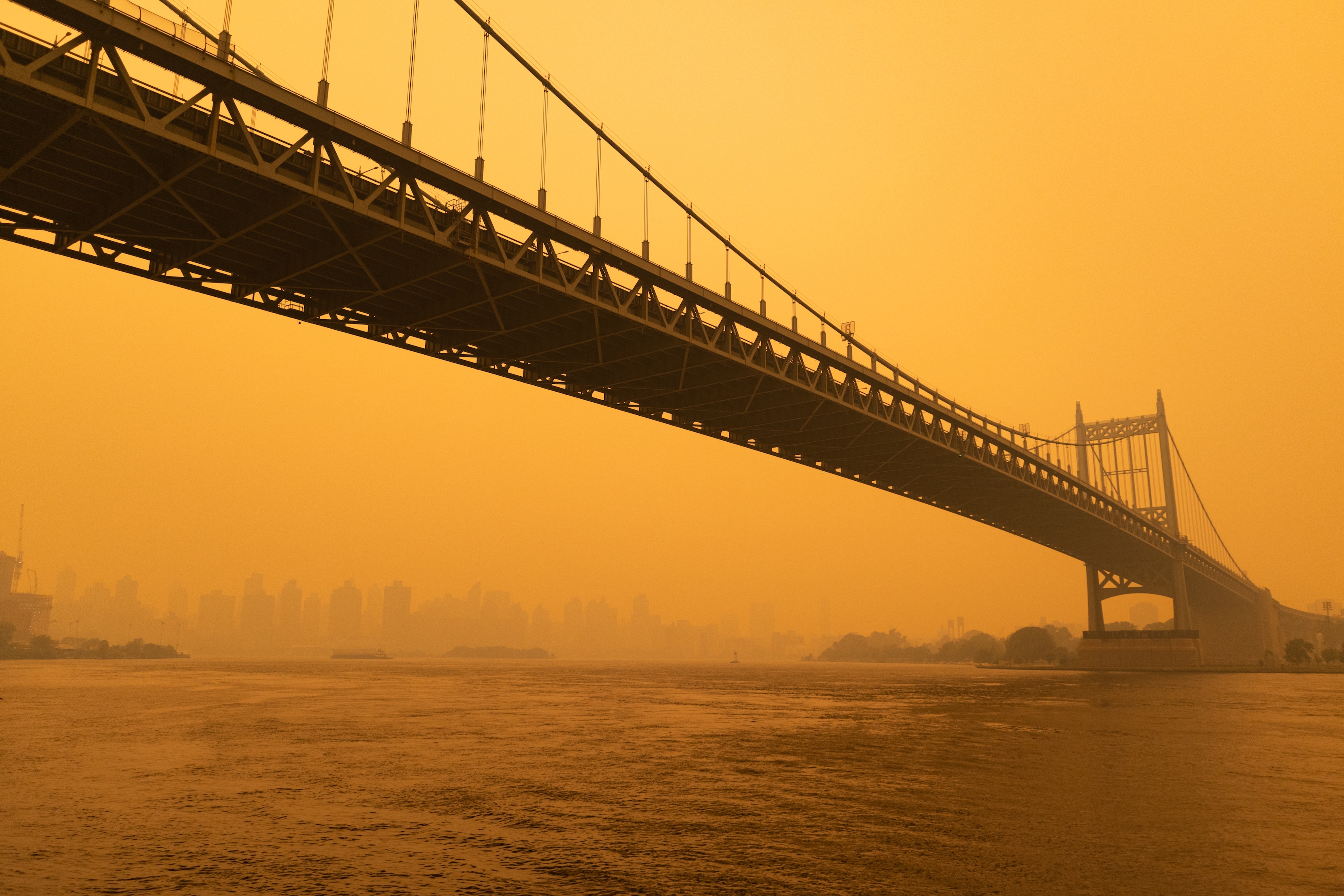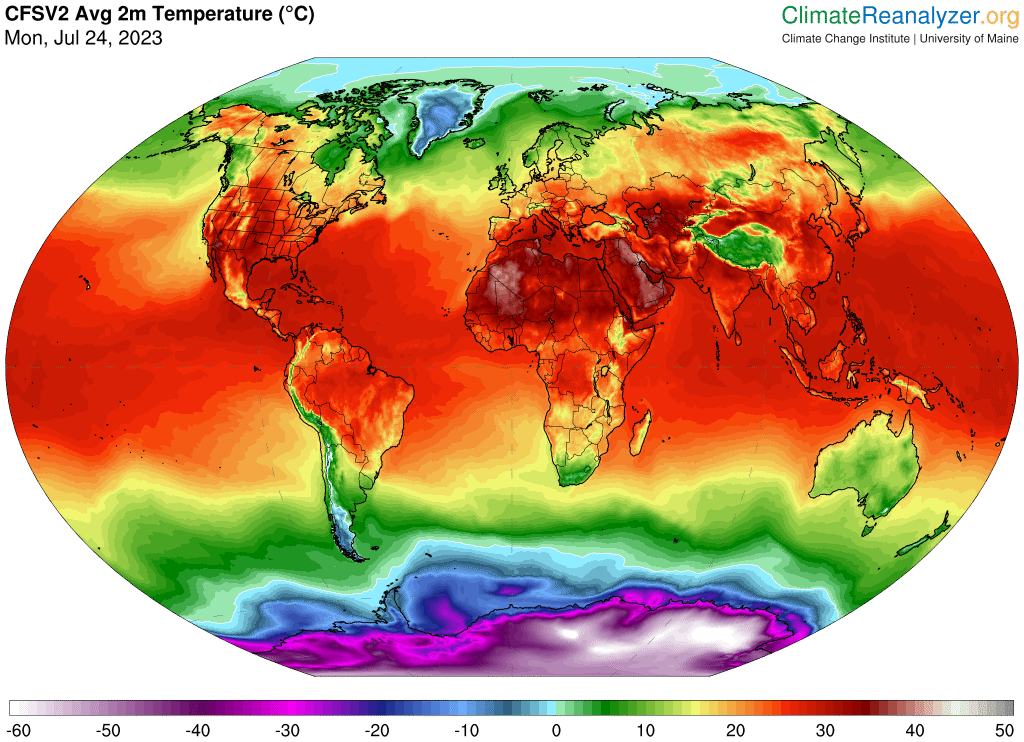
Several global temperature records were broken this past month—making July the hottest month ever recorded—with17 consecutive days of record setting temperatures. Earth’s temperature has not been this high for roughly 125,000 years. With soaring temperatures, wildfires are burning across the globe. In June, fires in Canada blew smoke over New York City filling the skyline with an ominous orange hue.
Ocean temperatures are also at a shocking all-time high. Waters near the Florida Keys spiked to a record-breaking 101.1 F surpassing the previous record of 99.7 F measured at Kuwait Bay in the Persian Gulf. In the North Atlantic, scientists are alarmed by severe marine heatwaves where “temperatures are off the charts” in Europe. Parts of the Atlantic have experienced an unprecedented increase of 7 degrees F. And now, a powerful El Niño system is brewing in the Pacific Ocean, releasing massive amounts of heat into the atmosphere which will result in increased rainfall, floods, landslides, coastal erosion, and larger storm surges this fall and winter.

While this summer has unleashed brutal climate change impacts, actions by the Biden Administration will help local communities respond and adapt to climate change. Recently two pieces of legislation passed, the Bipartisan Infrastructure Bill and the Inflation Reduction Act. The Biden Administration is working with several federal agencies to establish grant programs where billions of dollars will directly go to local communities to fend off climate change impacts. Our ocean and coasts will greatly benefit from these funds— over $6B is earmarked to specifically fund coastal resilience.
The billions of dollars going toward ocean and coastal resilience is unprecedented and provides a rare opportunity for states and local communities to use these funds to proactively plan for climate change impacts such as extreme weather, sea level rise and to restore keystone coastal ecosystems like dunes, seagrass, mangroves, and wetlands that protect our communities from extreme weather and sea level rise. These grants can also help communities update land-use plans to improve coastal management in light of the climate emergency. Surfrider is working to educate states and local communities about these funds. We recently published a toolkit that provides a roadmap for coastal resilience funds, which is also available at go.surfrider.org/coastalresiliencefunding.
While our new normal, is not normal, we can improve our everyday-actions to lessen our climate footprint by driving less, eating less meat, being mindful of energy consumption, composting food, and ditching single use plastics made of fossil fuels, to name a few. Becoming more active in your local community can help decision makers implement strong climate laws and policies. You can also be a Surfrider online activist by visiting Surfrider's action alert page and urging Congress and President Biden to take bold climate action. Now is the time to turn around our climate change emergency to ensure a sustainable planet for future generations.
